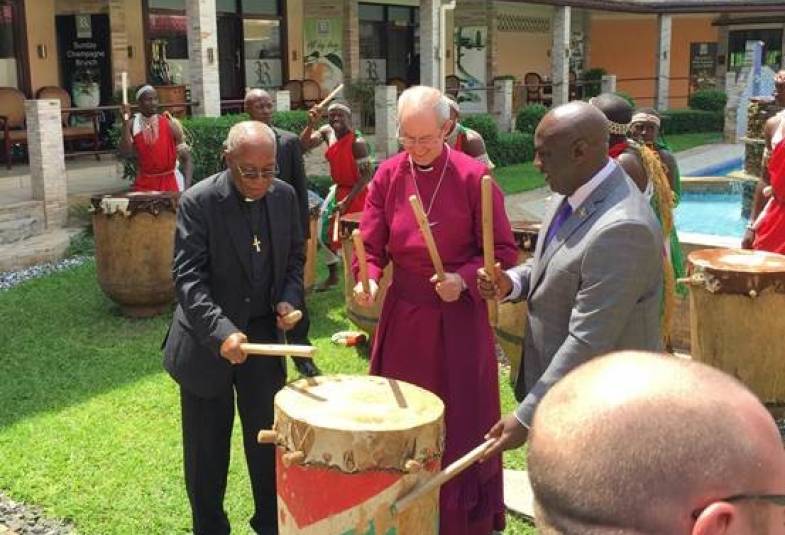04/03/2016

The Archbishop of Canterbury arrived in Burundi yesterday for a three-day visit to show solidarity with Anglicans and pray for peace and reconciliation in the country amid its ongoing political crisis.
During the visit Archbishop Justin Welby will meet and pray with the leaders of the Anglican Church of Burundi, as well meeting with government leaders and those involved in politics to talk about reconciliation.
This morning Archbishop Justin Welby made a pastoral visit to President Nkurunziza to pray and discuss issues of reconciliation.
Speaking to BBC Africa, the Archbishop said that he and his wife, Caroline Welby, wanted to visit Burundi at this point to show solidarity with the Anglican church there and pray with its leaders, as well as with those in government and politics.
The Archbishop said they wished to “renew the sense that Burundi is a country which many people love and that they are never forgotten – they are never far from our hearts.
“As Christians, we come always carrying the message of reconciliation. And so we come to pray for that reconciliation, and with the leaders of the Church here.”
The Anglican Church of Burundi is “not by any means the biggest church” in the country “but it is an influential Church,” he said.
“It’s part of the Anglican Communion, which is the third biggest of the global churches, with 85 million Christians around the world. Archbishop Bernard [Ntahoturi] and his colleagues are loved and prayed for and respected all the way round the world, and the Church can be part of the solution and will be part of the solution and is part of the solution."
Speaking about the conflict in the country, he said: “We have to recognise always that people fail and do the wrong things. Attacks on people and violence, they happen all over the world, they’re wrong, whoever does them and in whatever the circumstances. It is the call of the Church to stand clearly for reconciliation, and to call people together, to see each other as human beings, not to demonise their enemies but to love their enemies as Jesus did, and to find ways of building a common future. Not necessarily agreeing – people will always disagree, that’s the nature of human life and political life – and disagreement is fine, but all of us need to learn to disagree in a way that enables human beings to flourish and to live in safety.”